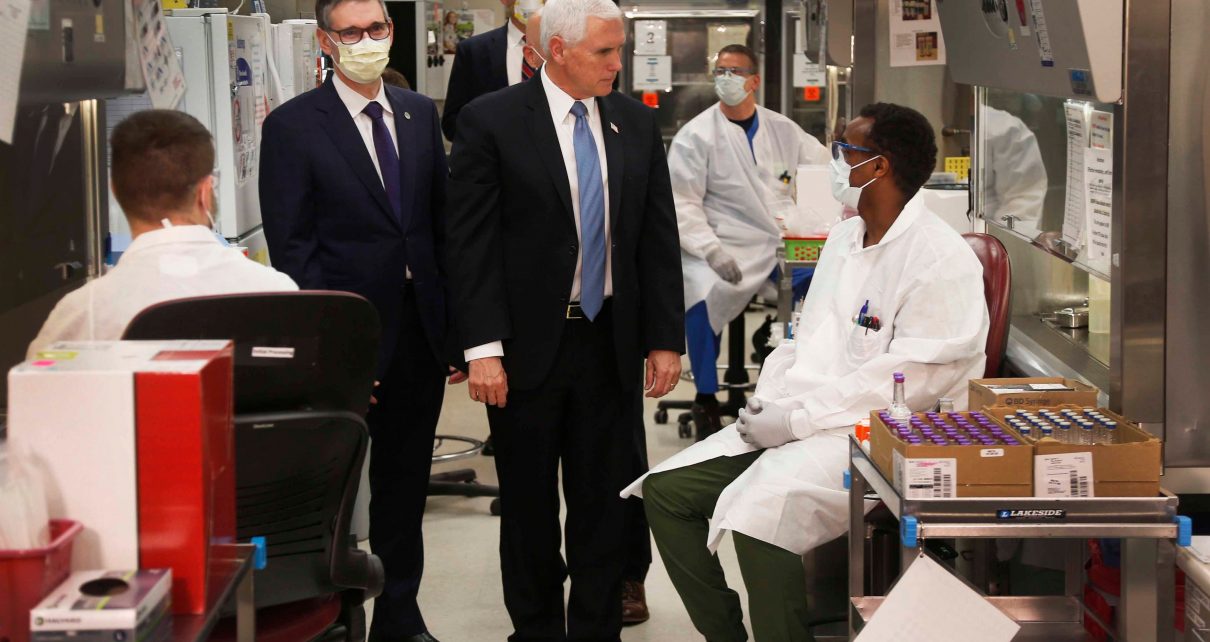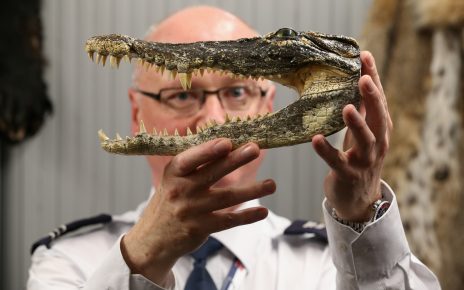On April 28, Vice President Pence visited the Mayo Clinic, but could not bring himself to comply with their safety protocols and don a mask. His behavior mimics President Trump’s prior refusal to wear a mask even as he urged Americans to do so. Pence said he wanted to be able to look health care workers in the eye and Trump simply said “I’m choosing not to do it.”
Why the reluctance to model safe behavior? My research with Jennifer Berdahl and others suggest one critical reason: Appearing to play it safe contradicts a core principle of masculinity: show no weakness. In short, wearing a mask emasculates.
The refusal to wear a mask undermines the message that the rest of us should take safety precautions. But that’s the least of the problem. Leaders who are more concerned with preserving a macho public image put our lives at risk as they prove their manhood by showing resistance to experts’ opinions, hypersensitivity to criticism, and constant feuding with anyone who seems to disagree with them.
In our research, the show no weakness principle manifests by acting like you always know the answer. Admitting uncertainty or that you rely on anyone else’s opinion seems “weak.” Trump’s resistance to experts’ advice stems from a constant need to demonstrate that “I alone can fix it.”
Further, show no weakness goes hand in hand with another masculinity norm: everything is a dog-eat-dog competition. For leaders like Trump, each situation is a personal masculinity contest that he “wins” and others must “lose.” Admitting a past mistake or receiving criticism are intolerable. Scores must be settled with anyone who fails pump up the leader’s ego. For example, in the current crisis critical supplies are more likely to be delivered to states where governors fawn over rather than criticize Trump.
In addition to poor decision-making, our research shows that masculinity-obsessed leaders create dysfunctional organizations that fall apart when times get tough. The leader’s need to seem infallible and defensiveness create a Game of Thrones environment where subordinates constantly compete to curry the leaders’ favor. When everyone is looking out for number one, it becomes unlikely that they will all pull together effectively when a crisis hits.
The coronavirus has laid bare just how strongly some male leaders value projecting a tough, macho image, even at the risk of contracting or spreading coronavirus. President Trump, a germaphobe known to hate shaking hands even in the best of times, ostentatiously continued to press the flesh well into March. Why? It’s the same reason that Trump, in 2017, courted danger from a different corona, making a show of staring at the sun during an eclipse. Defying experts’ warnings about personal danger signals “I’m a tough guy, bring it on.”
Boris Johnson similarly made such a point of handshakes and backslapping even as coronavirus spread that even before he ended up infected and hospitalized The Guardian labeled him a “super spreader.” Brazil’s President Jair Bolsonaro, who bragged that his athleticism would prevent him from getting the virus, continues to wade into crowds, shake hands, and hug supporters.
All three—Trump, Johnson, and Bolsonaro—not only publicly minimized the risked posed by coronavirus to prove their masculine credentials, but delayed or failed to implement safety measures that could have spared unnecessary deaths. By contrasts, female leaders were more likely to listen to the experts, taking immediate preventative action. For example, New Zealand, led by Prime Minister Jacinda Arden, has all but quashed the virus and minimized the death toll.
Not all male leaders are more concerned with projecting a macho image than with saving lives. Captain Brett Crozier, who commanded the aircraft carrier Theodore Roosevelt, prioritized his sailors’ wellbeing when coronavirus broke out. He persisted in seeking necessary help after dismissive superiors suggested he and his crew tough out. Similarly, Governor Andrew Cuomo has focused on achieving a communal goal, minimizing the number of covid deaths, doing whatever it takes to accomplish the mission.
Unfortunately, for leaders like Trump the need to exhibit masculine bravado is so deeply baked into their character that they really can’t help themselves from constantly trying to prove their toughness. In 2017, when Trump looked at the, he only stood to harm himself. In the current corona crisis, his continuing need to defy the experts and the danger to prove he’s a tough guy harms us all.




